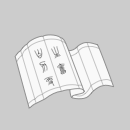
We have misunderstood the world9787500160960
正版图书,可开发票,请放心购买。
¥ 15.55 1.9折 ¥ 80 全新
库存5件
作者济群法师,周国平
出版社中译出版社有限公司
ISBN9787500160960
出版时间2019-10
装帧精装
开本32开
定价80元
货号10087559
上书时间2025-01-09
- 最新上架
商品详情
- 品相描述:全新
- 商品描述
-
作者简介
周国平,
1945年生于上海。1967年毕业于北京大学哲学系,1981年毕业于中国社会科学院研究生院哲学系,中国社会科学院哲学研究所研究员。著有学术专著《尼采:在世纪的转折点上》《尼采与形而上学》,散文集《守望的距离》《各自的朝圣路》《安静》,纪实作品《妞妞:一个父亲的札记》《岁月与性情——我的心灵自传》《偶尔远行》《宝贝,宝贝》,以及《人生哲思录》《周国平人文讲演录》等,译有《尼采美学文选》《尼采诗集》等。
济群法师,
1984年毕业于中国佛学院,随后至福建佛学院、闽南佛学院等地任教。多年来,教书育人,学修并重,为沩仰宗第十代传人。现任菩提书院导师、中国社科院特约研究员及多所大学客座教授,出版并发表各类著述、论文两百余万字。继承太虚大师人生佛教思想,提出佛法是人生智慧的理念,希望人们摆脱对佛法的误解,使佛法走入生活。
目录
Contents
Age And Responsibility
Philosophy And Religion
Noumenon And Emptiness
The Self And No Self
Freedom And Fate
Life, Death, And Samsara
Life, Joy, And Suffering
Morality And Cultivation
Awakening And Liberation
内容摘要Zhou: Western philosophy particularly emphasizes the self, whereas Buddhism has an essential theory that there is no self. This is a great difference.
Ji: People are quite obsessed with this“self.”Every other religion also posits that there is a so called “self.” Buddha Dharma, however, propounds that what we identify as the“self” is in truth a provisional self, a mistaken assumption. Buddha Dharma views the world from the perspective of dependent origination and posits that all compounded things are impermanent, selfless, and empty in nature.
Zhou: This is the most distinctive aspect of Buddhism.
Ji: Anatman (no self is a bit difficult to understand, because we usually live in a state of the self. When hearing “no self”, many people will be puzzled: then what do “I” count for? In fact, anatman does not refute the existence of this life phenomenon, but refutes the mistaken identi cations of the “self.” For instance, we regard our bodies as our “selves”, our identities and statuses as our “selves”, but all these are only of temporary relationships with life. ey are assumptions about the self which are acquired a er we were born, and are by no means true“selves”. However, as long as we regard these as our “selves”, we will become greedy and attached, which hampers ourselves from understanding the truth of life. Buddhism describes the “no self” to refute those mistaken identi cations of the self. Only a er refuting these identi cations are we able to see the original face of the “self”.
Zhou: What is the original face of the “self”?
Ji: What is self? This is a very interesting question. According to 94 Buddha Dharma, the “self ” that we now identify with is, in reality, an illusion. Everyday we pay close attention to ourselves, but have we ever thought: what, at bottom, represents “I”? We certainly believe that the answer to this question is obvious. In fact, when delving into it, we discover that the answer is brimming with uncertainty: we may think that our bodies are our “selves”, or our identities are our “selves”, or our thoughts are our “selves”, or our emotions are our “selves”, and so on and so forth. As a matter of fact, these things we deem our “selves” do not stand up to careful scrutiny, because they have only temporary relationships with us. Even our bodies that we cannot separate from for even a moment is also nothing more than a temporary anchor in this life. When this body has yet to be born or has already perished, where will I find myself ?
Zhou: In all identications of the self, the idea that my body is my self is the most robust, because without body there is no life in this present reincarnation, and thus “I” will not exist in this present lifetime.
Ji: This identication of the “self” is nothing more than a blind and strained interpretation, a wishful thinking. If we regard this temporary relationship between body and self as the foundation of our existence, then we will rely heavily on this relationship and even wish it to be eternal, which will incur miseries. For example, when we regard the body as the “self”, we will fear the death of the body; when we regard identity as the “self”, we will worry about losing this identity. Tere are also various other emotions when we cling to this relationship: anger, depression, pain … But what are these emotions? They are like tumors that grow on the body. Though they are connected to us, they by no means represent the “self”, and can even less be the “self”. The reason we are controlled by emotions is we regard emotions as our “selves”, and find numerous reasons to rationalize 95 these emotions, which, subsequently, control us instead.
Zhou: None of these things you’ve described is the self. I find that quite understandable. First, external identity, status, and family relationships are not self. Second, one’s emotions and thoughts are not self, either. All of these things are, in actuality, concealing the self. Hence, after these things are removed, is there any self remaining? Or is there still something that positively remains?
主编推荐
人生在世,向外寻求成功无可非议,然而优选很高的目标则是向内寻求觉醒。关于这一点,哲学和宗教早有共识。 本书的两位作家均为哲学与佛学领域的学界翘楚,周国平和济群法师皆以用心为人、潜心为文而著称于世,彼此神交已久。其超脱境界与超群智慧的碰撞令人拍案叫绝。 他们的声音,值得每一个被欲念和烦恼所困的人倾听。
精彩内容
《我们误解了这个世界》是著名学者周国平与济群法师的一系列深度对谈。两人从各自专研的领域出发,围绕内在自由与外在自由、命运的可变与不可变、人生的苦与乐、觉醒与解脱、无常与永恒等话题,展开深入的辨析甚至激烈的辩论,探讨正确认识自己、认识世界、认识人生的智慧与哲思。在当下这个喧嚣迷茫的时代,两位智者的对话,为读者指引出一条保持天真自省、归于内心和平的途径。
媒体评论
?英文读本,适合跨文化研究领域和英语学习的读者,去领悟中国佛学与哲学思想碰撞的魅力。 ?本书由当代高僧济群法师和有名哲学家周国平老师合著,从哲学和佛学的两个维度探讨当下生命的主题。适合对人生感到困惑,被世俗的声音所困扰的人们。 ?精装印制,包装精美,适合珍藏。 ?当下社会年轻人责任重、压力大,很容易就迷失在这个言论自由、大浪淘沙的年代,会经常迷失自己,失去人生方向。本书会带领这些读者学会去倾听自己内心的声音,寻求内在的觉醒。
— 没有更多了 —












以下为对购买帮助不大的评价